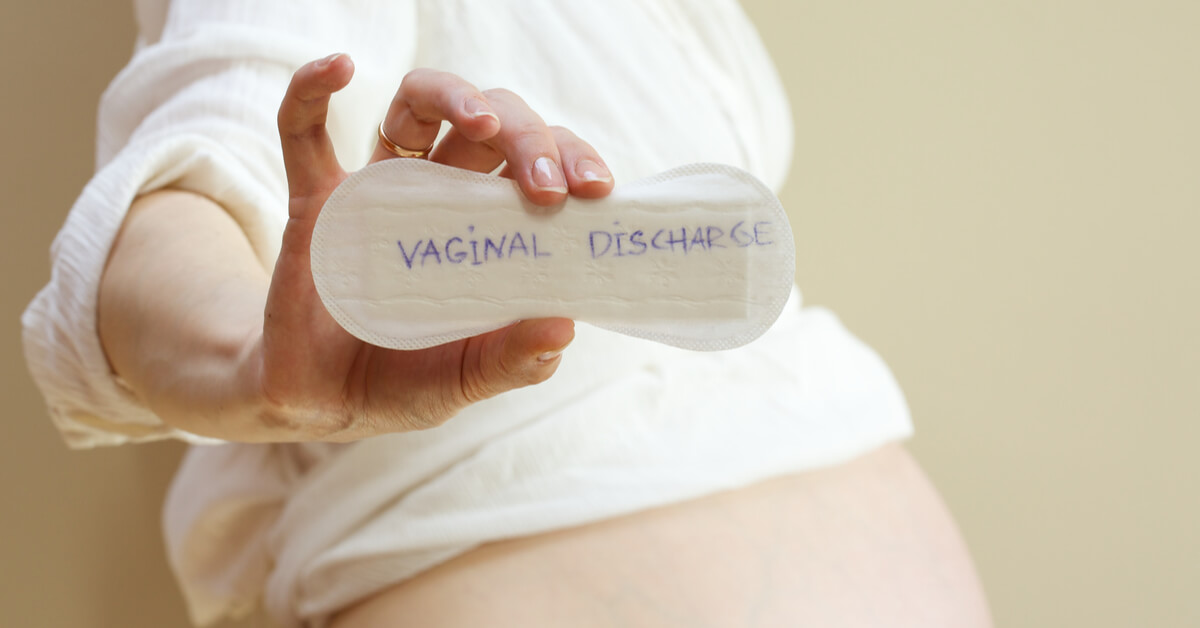Pregnancy instigates bodily changes heightened by increased hormone levels. Vaginal discharge is a common adaptation, usually normal but occasionally requiring attention. Many women experience this, emphasising the importance of distinguishing between regular occurrences and potential concerns.
Instances of vaginal bleeding can induce fear regarding the baby’s health. Rather than succumbing to anxiety, promptly consulting your doctor facilitates a comprehensive understanding and addresses concerns about your baby’s well-being. Maintaining open communication with your healthcare provider ensures a smoother pregnancy journey.
Understanding Pregnancy Discharge: Normalcy and Concerns
Many women grapple with questions about vaginal discharge during pregnancy, pondering its normalcy and potential impact on the baby. This article addresses common queries such as “Is it normal to have discharge during pregnancy?” and delves into the nuances of this natural occurrence.
During pregnancy, an increase in vaginal discharge is typical. The article guides you on discerning normal discharge from that caused by infections, considering factors like colour and smell. Importantly, it emphasises that while normal discharge is generally harmless and may even be beneficial, infections warrant treatment.
The piece navigates the concern of whether discharge can harm the baby. It elucidates that while normal discharge aids in maintaining vaginal pH balance and safeguarding against harmful bacteria, infection-induced discharge can pose risks during giving birth. Prompt identification of the discharge’s cause and appropriate treatment are crucial for a healthy pregnancy journey.

Understanding Vaginal Discharge During Pregnancy
Vaginal discharge in pregnancy varies, categorised by colour, smell, and texture:
- Physiological Currents: Typically thick, colourless or very light, odourless, and causing no discomfort, these are normal and result from hormonal changes. Harmless to the baby.
- Discharge from Vaginal Infection:
- Fungal Infection: Clear to milky white, mildly scented or unscented, caused by the Candida fungus. Not harmful to the baby but requires pre-birth treatment.
- Bacterial Infection: Greenish, yellow, or grey with a foul odour, this infection can impact the baby’s health during birth and may indicate premature birth risk. Immediate treatment is essential.
While discharge characteristics offer clues, consult your doctor for a precise diagnosis and appropriate guidance during pregnancy.
Understanding the Causes of Discharge During Pregnancy
Expectant mothers may experience discharge due to various reasons:
- Increased Blood Flow: Pregnancy leads to vaginal expansion and heightened blood flow, causing an increase in discharge.
- Poor Hygiene Practices: Frequent washing with soap and water can disrupt vaginal pH balance, increasing infection risks.
- Prolonged Moisture Exposure: Sitting in wet swimsuits creates a humid environment, promoting bacterial growth.
- Medication Use: Long-term use of birth control pills, drugs, or antibiotics may reduce beneficial bacteria, leading to infection.
- Clothing Choices: Tight clothing and non-cotton or synthetic underwear may cause sweating, leading to discharge.
- Poor Genital Hygiene: Inadequate cleaning fosters harmful bacteria growth.
- Pool Exposure: Pools with high chlorine content or insufficient cleanliness can cause infections.
- Diabetes: Expectant mothers with diabetes are more prone to discharge during pregnancy.
- Chemical Exposure: Using perfumed toilet paper or cleaning genitals with chemicals may lead to infections.
- Shared Clothing: Using someone else’s underwear poses infection risks.
- Cold Environments: Walking barefoot on cold floors can trigger discharge.
- Hormonal Treatments: Various hormonal treatments may cause an increase in discharge.
- Tampon Use: Using tampons may contribute to vaginal infections.
Understanding these factors helps manage and prevent abnormal discharge during pregnancy. Regular check-ups with your healthcare provider are essential for a healthy pregnancy.

Tips for Managing Discharge During Pregnancy
To minimise discomfort from vaginal discharge during pregnancy, consider these simple precautions:
- Maintain Genital Hygiene: Clean the genital area regularly, ensuring hands are thoroughly washed to prevent germs.
- Change Underwear Frequently: Use clean underwear, avoiding synthetic fabrics that hinder breathability and induce sweating.
- Gentle Cleaning: Use warm water, not soap or chemical-containing genital cleaning materials, for cleaning.
- Avoid Pressurized Water: Refrain from washing the inside of the vagina with pressurised water.
- Iron Underwear: Ensure underwear is germ-free by ironing thoroughly.
- Keep Feet Warm: Avoid stepping on cold surfaces barefoot; keep your feet warm.
- Choose Clean Spaces: Use clean toilets and pools, avoiding places with questionable cleanliness.
- Prevent Prolonged Sweating: Minimise prolonged periods of sweating.
- Limit Tampon Use: Use tampons sparingly, only when necessary.
- Monitor Medication Use: Avoid prolonged use of drugs and antibiotics.
- Use Daily Pads: If experiencing discharge, use daily pads and change them frequently for freshness.
If you are experiencing discharge during pregnancy, you should notify your doctor when you have discharge. Any medication, suppositories, cream, etc. without the guidance of your doctor. you should not use in cases of infection, you can use various vaginal suppositories and creams, but your doctor should recommend them.
Would you like to share your experiences and questions as a comment?
Have a nice and healthy day!







